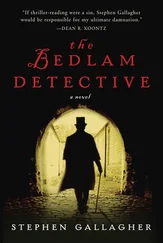I changed back into my uniform and walked to the cybercafé, a sandblasted bungalow covered in satellite dishes. I took a seat at one of the desks, woke up the computer, and googled “Staff Sergeant Rios U.S. Army Ashuriyah Iraq.”
Why did I care? Because getting rid of Chambers mattered. In only a couple of weeks, his presence was transforming my platoon. My brother was right: men like him were time bombs. Also, I was bored with paying off sheiks and teaching jundi s rifle discipline over and over again. I was intrigued by the idea of war, a real war, occurring in the same streets and mud huts I now called my own.
The death pitch in the Iraqi mother’s cries probably had something to do with it, too.
The search led to an entry on iCasualties: “Staff Sergeant Elijah Rios — KIA, nonhostile event, near Baghdad, Iraq, April 4, 2006.” An obituary from a small-town newspaper in Texas said that Rios had dropped out of community college after 9/11 and enlisted in the army, and was survived by a mother, Ninel, and a sister, Sarah. A variety of links led back to the same 2009 Associated Press story that outlined his family’s struggle with the military bureaucracy to recover his full remains—“a small amount of tissue found on army equipment was positively identified through DNA testing as belonging to Rios, enough to classify him as Killed in Action,” the story read.
It went on to quote Rios’ mother: “My son is partially in the ground here, one or two inches maybe. But most of him is still over there. Just ’cause the Pentagon lists him as ‘accounted for’ doesn’t make it true.”
When I returned to the bay, the maintenance team had a message: the Big Man wanted to see me. “How wonderful,” I said. The warrants just grunted and went back to the engines. They’d seen plenty of sarcastic lieutenants come and go. I turned around and walked up the long asphalt snake that led to battalion headquarters.
The walk was flat and drab. I poured canteen water onto the pavement, and it hissed in reply through the fierce triple-digit heat. I picked up some discarded flyers calling for participants in the Camp Independence softball league and stuffed them in my cargo pocket. Hog would appreciate this latest artifact of fobbit life.
Proof of the might of the military-industrial complex lay everywhere. Trailers lined the road with pickups in front of them, most marked with Halliburton decals. Other trailers advertised deals for new cars or cash advances for deployed soldiers. Beige tents and warehouses dotted the horizon like mole hills, every single one a KBR structure. The chow hall gleamed in the distance on the northern fringe of the camp, a sprawling ivory planet unto itself, ringed by Burger King, Taco Bell, and Pizza Hut stands. I wondered if I had time for a Whopper with cheese, but decided I didn’t. Each step the other way deepened the craving, and soon all I wanted was a patty of cooked cow stuck between sloppy, gooey pieces of cheese and bun, but I was a military man, and military men put duty first and stomach second.
I walked by a group of soldiers roasting in the sun as they filled sandbags for a bunker. They were part of the base’s work detail, a receptacle for malcontents and PTSD head cases. I asked some of them about their work. We were at least a mile away from the living quarters.
“For the contractors,” they said. “In case of a mortar attack.” They forgot to salute me, but I didn’t care enough to correct them.
The air-conditioning in the operations center roared, and it took my eyes a couple of seconds to adjust to the dim green glare of laptops. I smelled warm cheeseburger coming from one of the workstations. My belly growled in resentment. An admin soldier grabbed my rifle, placed it in the weapons stand, and hurried me into the Big Man’s waiting room. I knocked twice and entered.
The Big Man sat in a metal folding chair parallel to, rather than behind, his desk. The battalion flag hung over him limply, and the room smelled like burnt matches. Ever the linebacker, he motioned with his fist to sit across from him.
“I understand your platoon was the first to reach Checkpoint Thirty-Eight this morning.”
“Yes, sir,” I said, pulling up a chair. “Quite a scene.”
“That’s what happens when small-unit leaders lose focus,” he said. The Big Man exhaled slowly through his nostrils, his lips pursed as if choking off an inner rage. My mom had grown up an admiral’s daughter and said that senior officers functioned so that no truth could betray the myths, of either the past or the mind. It came with the rank, she believed, and it wasn’t something they were able to leave at work. I wondered if some of that was going on with the Big Man now. How could more focus have slowed that white car or made the machine gun a precision weapon?
He directed a fist my way. “I’ll be relieving both the platoon leader and the platoon sergeant, and that gunner — well, I’m not sure yet.”
I sat up straight, clearing my throat. “From what I understand, sir, he followed the rules of engagement.”
A pulsing neck artery and deep scowl suggested the Big Man felt otherwise.
“I understand you’ve been having some issues explaining the nuances of our mission to your platoon,” he said.
“I have?”
“Sir.”
“I have, sir?”
“Lieutenant, counterinsurgency is a complicated task. A thinking man’s war. Requires care, restraint. An appreciation for the gray.”
“Sir, I’m all about the gray,” I said, grasping for a foothold on which to hoist myself back into his good graces.
The Big Man wasn’t having it. His eyebrows rose like crucifixes until I stopped talking.
“We’re the army, Lieutenant. We like blowing things up. For years, we’ve been trained that we’re the hammer and every problem is a nail. That’s not going to do it here. This is a guerrilla war. Where were you during the Invasion? I was in-country. You know what we learned?”
Another “Clear-Hold-Build” speech was coming. I’d memorized it long ago: Clear an area of insurgents. Hold that area to keep it clear, so the bad guys can’t move back in. Build up the area with civil affairs projects and money and shit. So while the Big Man went on about battles I’d never heard of and soldiers I didn’t know, I stared at a speck of dirt on his pink, bald head and thought about how unfair it was that Will, of all people, was free and blithe while I was stuck in this hellhole. He’d been so awkward in high school — all honors classes, cross-country races, and student newspapers. He actually came home his prom night, like an idiot. I’d been twelve at the time and stayed up playing The Legend of Zelda , telling our mom to lay off the cigarettes and go to bed. After he closed the front door quietly at midnight like a good boy, I met him in the kitchen and asked if he’d finally done it. When he told me to shut up because he didn’t want to talk about it, I promised myself I’d never be like him.
The crimson flush in the Big Man’s cheeks brought me back.
“You hearing me? We’re replacing your platoon sergeant.”
“Yes, sir. I mean, no, sir. I mean… wait, what, sir?”
“I’m a patient man, son, but you’re testing it. I’ve received reports that your platoon needs a jolt. To refocus on the fight. I talked with Captain Vrettos, and in addition to replacing first platoon’s leadership, we decided Sergeant First Class Sipe is burned out. He’s been reassigned to operations staff. Which means you get a chance to start over with a new battle buddy and prove yourself more capable of the responsibility with which you’ve been charged.”
“Who’s my new platoon sergeant?”
“Staff Sergeant Chambers.”
An anchor dropped through me.
Читать дальше




![Ally Carter - [Gallagher Girls 02 ] - Cross My Heart & Hope To Spy](/books/262178/ally-carter-gallagher-girls-02-thumb.webp)
![Ally Carter - [Gallagher Girls 01] I'd Tell You I Love You But Then I'd Have to Kill You](/books/262179/ally-carter-gallagher-girls-01-i-d-tell-you-i-lo-thumb.webp)






